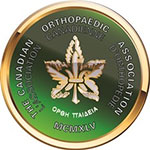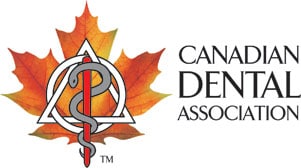Antibiotics for Patients with Prosthetic Joints
Historically, orthopedic surgeons have requested that their patients take antibiotics 1 hour before their dental appointments in order to avoid bacterial damage to the joint in question. Science is no longer able to support this practice since the chances of infection are considerably lower than the risk of adverse drug events with antibiotics. As a result, we are sending patients back to their surgeons for the prescriptions.
Below is a statement from the Canadian Dental Association regarding the need to take antibiotics before a dental appointment if the patient has a prosthetic joint (e.g. hip replacement).
Consensus Statement: Dental Patients with Total Joint Replacement
Preamble
The origin of prosthetic joint infections has been a controversial topic for dentists, physicians and patients. Confusion surrounds the risk of dental procedure-related bacteremia and the subsequent risk of patients with orthopedic devices developing prosthetic joint infection following such bacteremia.
The Canadian Orthopedic Association (COA), the Canadian Dental Association (CDA) and the Association of Medical Microbiology and Infectious Disease (AMMI) Canada have reviewed the current best available evidence on the effectiveness of dental antibiotic prophylaxis in the reduction of orthopedic prosthetic joint infections, in the context of the issue of emerging antimicrobial resistance and the critical role of all health care providers to steward appropriate use of antimicrobial drugs.
These professional bodies conclude that:
- Most transient bacteremia of oral origin occurs outside of dental procedures.
- The significant majority of prosthetic joint infections are not due to organisms found in the mouth.
- Few prosthetic joint infections have an observable and clearly defined relationship with dental procedures.
- There is no reliable evidence that antibiotic prophylaxis prior to dental procedures prevents prosthetic joint infections.
Recommendations
As a result of this work, the COA, CDA, and AMMI Canada provide the following guidance concerning the management of dental patients with orthopedic devices:
- Patients should not be exposed to the adverse effects of antibiotics when there is no evidence that such prophylaxis is of any benefit.
- Routine antibiotic prophylaxis is not indicated for dental patients with total joint replacements, nor for patients with orthopedic pins, plates and screws.
- Patients should be in optimal oral health prior to having total joint replacement and should maintain good oral hygiene and oral health following surgery. Orofacial infections in all patients, including those with total joint prostheses, should be treated to eliminate the source of infection and prevent its spread.
COA Board of Directors
Approved: June 2016
CDA Board of Directors
Approved: June 2016
AMMI Canada Board of Directors
Approved: July 2016



This information was created by the Canadian Orthopedic Association (COA), the Canadian Dental Association (CDA), and the Association of Medical Microbiology and Infectious Disease (AMMI) Canada. It should not be used as a replacement for professional dental or medical advice. If you have questions about this position statement, please contact the Canadian Dental Association (CDA).
Source: Canadian Dental Association

